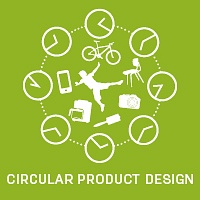The Faculty of Industrial Design Engineering, in cooperation with the Ellen MacArthur Foundation, played host to the Circular Product Design Symposium on November 6, 2014
A key part of the 2014 Disruptive Innovation Festival, the event featured 15 of the world’s leading experts and pioneers in circular product design. The series of talks explored the many challenges and opportunities of the Circular Economy, whereby today’s products serve as tomorrow’s resources. This sustainable approach to production and consumption has becomea growing platform for businesses and innovative design.
“We’d like to think of ourselves –and we are– a pioneer university in the field of circular product design,” said Industrial Design Engineering (IDE) Assistant Professor Dave Peck in his opening remarks. His chance encounter with the UK-based Ellen MacArthur Foundationa few years ago led to the proliferation of circular product design at the IDE Faculty and subsequently, the organization of this year’s TU Delft symposium. “We have a stellar line-up of speakers who I think are going to blow your socks off with what they know, what they’ve seen and what they are developing.”
Indeed, internationally renowned designers and researchers such as Phonebloks founder Dave Hakkens and VU AmsterdamMutualistic Interactions Professor Toby Kiers were on hand to share their perspectives on the development of new products and strategies geared towards the foundation of a Circular Economy. This design philosophy is in stark contrast to the prevalent, linear economic model whereby products are made from finite resources, used, and thenimmediately disposed of once they break or are rendered obsolete. Circular product design, on the other hand,movestowards a “return-and-renew” culture in which products and components are disassembled and regenerated rather than simply thrown away.
“I think the Circular Economy just means good design, really,” said Rich Gilbert, co-founder of Britishdesign consultancy The Agency of Design. “We got into this area looking at how you can eradicate waste, looking at ‘end-of-life’ products, realizing that, actually, there’s a huge amount of intelligence going into making products, the sophistication that we assemble things, that we innovate continuously. Yet, all of that was missing from that ‘end-of-life’ process.”Although, zero waste and sustainability are central elements of circular product design, the Circular Economy takes these concepts further by challenging the current economic models of production and consumption, while seeking to improve our overall quality of life.



Comments are closed.